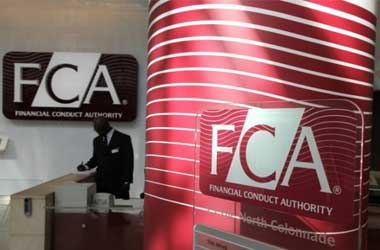 The UK has a new sheriff in town when it comes to cryptocurrencies as the Financial Conduct Authority (FCA) has now been put in charge. The UK’s top financial regulator has been working hard to ensure there are no fires the country’s financial markets. The FCA has been pretty successful in ensuring that most of the UK financial world is stable and safe for investors. The FCA has now been tasked with the responsibility of overseeing the crypto market.
The UK has a new sheriff in town when it comes to cryptocurrencies as the Financial Conduct Authority (FCA) has now been put in charge. The UK’s top financial regulator has been working hard to ensure there are no fires the country’s financial markets. The FCA has been pretty successful in ensuring that most of the UK financial world is stable and safe for investors. The FCA has now been tasked with the responsibility of overseeing the crypto market.
The FCA is now the anti-money laundering (AML) and commodity trade finance (CTF) supervisor of UK crypto asset activities. Technically this means that any crypto business in the UK will now be under the supervision of the regulator. This is a strong move for the government since the crypto industry is well-known for being volatile and unregulated.
Now that the FCA is in charge, the regulator plans to change that. There are several new preventative measures and policies that it will implement to stop all of the current abuse in the system.
The main one is to have in-depth knowledge about clients. Normal financial institutions have strict know-your-customer laws to ensure that no one is using them for money laundering and terrorist financing. With cryptocurrencies usually being used for this purpose, since the transactions are much easier to obscure, this new restriction is desperately needed to control the abuse of the market.
The FCA will also require companies to have further oversight over the various transactions of the business. They will need to have a dedicated board member to be in charge of compliance. They are also responsible for ensuring due diligence is done when customers enter into a relationship with the business. Background checks are their main duty, especially if a customer is flagged as a high risk for money laundering and/or terrorist financing.
Required Compliance
Cryptocurrency businesses are required to follow all the regulations that the FCA is implementing. All of the changes in regulations are found on the FCA site and businesses are recommended to take a look at it.
The FCA does not need immediate compliance for companies that were already in operation before January 10, 2020. Businesses are given some leeway to comply with the regulations. They are given up to June 2020 to fix their operations and submit an application to the FCA before the deadline.

 United States
United States United Kingdom
United Kingdom












